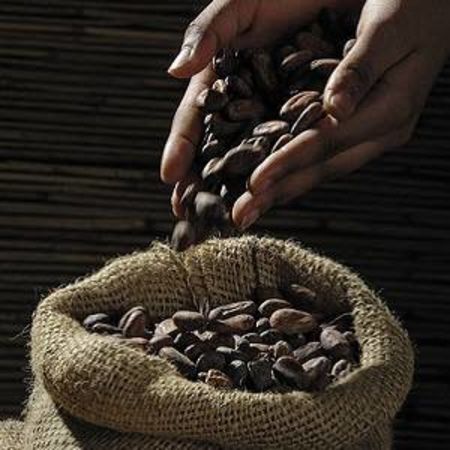A new study published in the American Journal of Clinical Nutrition supports a growing body of evidence on the heart health benefits of bioactive compounds found in cocoa. Moreover, the study found that two types of bioactives called flavanols and procyanidins behave differently in the body.
The study's key findings are:
• Healthy adults experienced improved blood vessel function along with improvements in blood pressure, arterial stiffness, and cholesterol after one month of once-daily consumption of an extract enriched in flavanols and procyanidins.
• Only the group that consumed flavanols and procyanidins together experienced all benefits. The group that consumed the procyanidin-enriched extract only experienced a reduction in total cholesterol.
• Consequently, improvements in blood vessel function, blood pressure, and arterial stiffness were shown to predominantly relate to the intake of flavanols, but not to the intake of the more abundant procyanidins and their gut microbiome-derived metabolites.

In a month-long randomised and double-blinded study, 45 healthy male adults were divided into three groups taking different amounts of flavanols and procyanidins to determine the effect of each on a range of cardiovascular endpoints. One group of participants consumed a cocoa extract containing 130 mg of a flavanol called (−)-epicatechin (pronounced "minus epicatechin") as well as 560 mg of procyanidins. The second group took cocoa extract capsules delivering a nearly equivalent amount of procyanidins (540 mg), but only 20 mg of (−)-epicatechin. The third group took placebo capsules that were free of both flavanols and procyanidins, but otherwise nutritionally matched to the capsules consumed by the other two groups. Importantly, all capsules were matched for their methylxanthine (caffeine and theobromine) amounts.
Image Credit: Mars, Incorporated
"We were able to confirm previous findings related to cocoa flavanols, and we gained novel insights into the respective contributions of flavanols and procyanidins in the context of their cardiovascular effects in humans. We found that the flavanols, especially (−)-epicatechin, represent the bioactives primarily responsible for the beneficial vascular effects observed after cocoa flavanol intake," said Christian Heiss, a clinical professor based at the University of Surrey and Surrey and Sussex Healthcare NHS Trust, and one of the researchers in the study.
Bioactives are dietary compounds that can be beneficial to health. Both groups of compounds, flavanols and procyanidins, are also found in apples, grapes, berries, and some cereals and legumes. Multiple studies have shown that daily consumption of flavanols and procyanidins has led to improved blood pressure, cholesterol and the flexibility of blood vessels. But until now, it was less clear to what extent flavanols and procyanidins respectively contribute to the observed benefits, and whether or not they act synergistically.
Dr. Heiss and co-researchers, including scientists from Mars, Incorporated, conducted a month-long randomised and double-blinded study to assess the respective contributions of dietary flavanols and procyanidins in mediating cardiovascular effects in humans. Forty-five healthy male adults were divided into three groups taking different amounts of flavanols and procyanidins to determine the effect of each on a range of cardiovascular endpoints. One group of participants consumed a cocoa extract containing 130 mg of a flavanol called (−)-epicatechin (pronounced "minus epicatechin") as well as 560 mg of procyanidins. The second group took cocoa extract capsules delivering a nearly equivalent amount of procyanidins (540 mg), but only 20 mg of (−)-epicatechin. The third group took placebo capsules that were free of both flavanols and procyanidins, but otherwise nutritionally matched to the capsules consumed by the other two groups. Importantly, all capsules were matched for their methylxanthine (caffeine and theobromine) amounts.
"Only the group taking 130 mg of (−)-epicatechin experienced both the acute and long-term beneficial effects related to flavanol and procyanidin intake," Dr. Heiss noted. Acute responses included improvements in the ability of blood vessels to dilate. Long-term responses included improvements in blood pressure and arterial stiffness. The groups taking either a placebo or the low-epicatechin capsules experienced no significant changes in any of the above endpoints.
This study also looked at what happens to flavanols and procyanidins after they are consumed and enter the body. The results confirmed findings from earlier investigations, showing that flavanols and procyanidins are broken down by the microbiota in the human gut, resulting in the formation of compounds called gamma-valerolactones. However, based on the findings, gamma-valerolactones appeared not to be directly involved in mediating improvements in blood vessel dilation, blood pressure, and vascular stiffness, and thus appear not to be bioactive in the context of these cardiovascular effects.
"Compared to other bioactives, we know quite a lot about cocoa flavanols today, but this study provides new and important insights," said Dr. Heiss. "It is critical to understand how these bioactives interact with each other and with the human body, in order to create a comprehensive basis for evidence-based recommendations about how much of these compounds, or the foods that contain them, people should be consuming for health maintenance and disease risk reduction."
Source: Mars, Incorporated
References:
Rodriguez-Mateos A, Heiss C et al. (2018) Assessing the respective contributions of dietary flavanol monomers and procyanidins in mediating cardiovascular effects in humans: randomized, controlled, double-masked intervention trial. Am J Clin Nutr, nqy229, https://doi.org/10.1093/ajcn/nqy229
Latest Articles
heart health, cocoa, bioactives
A new study published in the American Journal of Clinical Nutrition supports a growing body of evidence on the heart health benefits of bioactive compounds found in cocoa. Moreover, the study found that two types of bioactives called flavanols and procyan



























